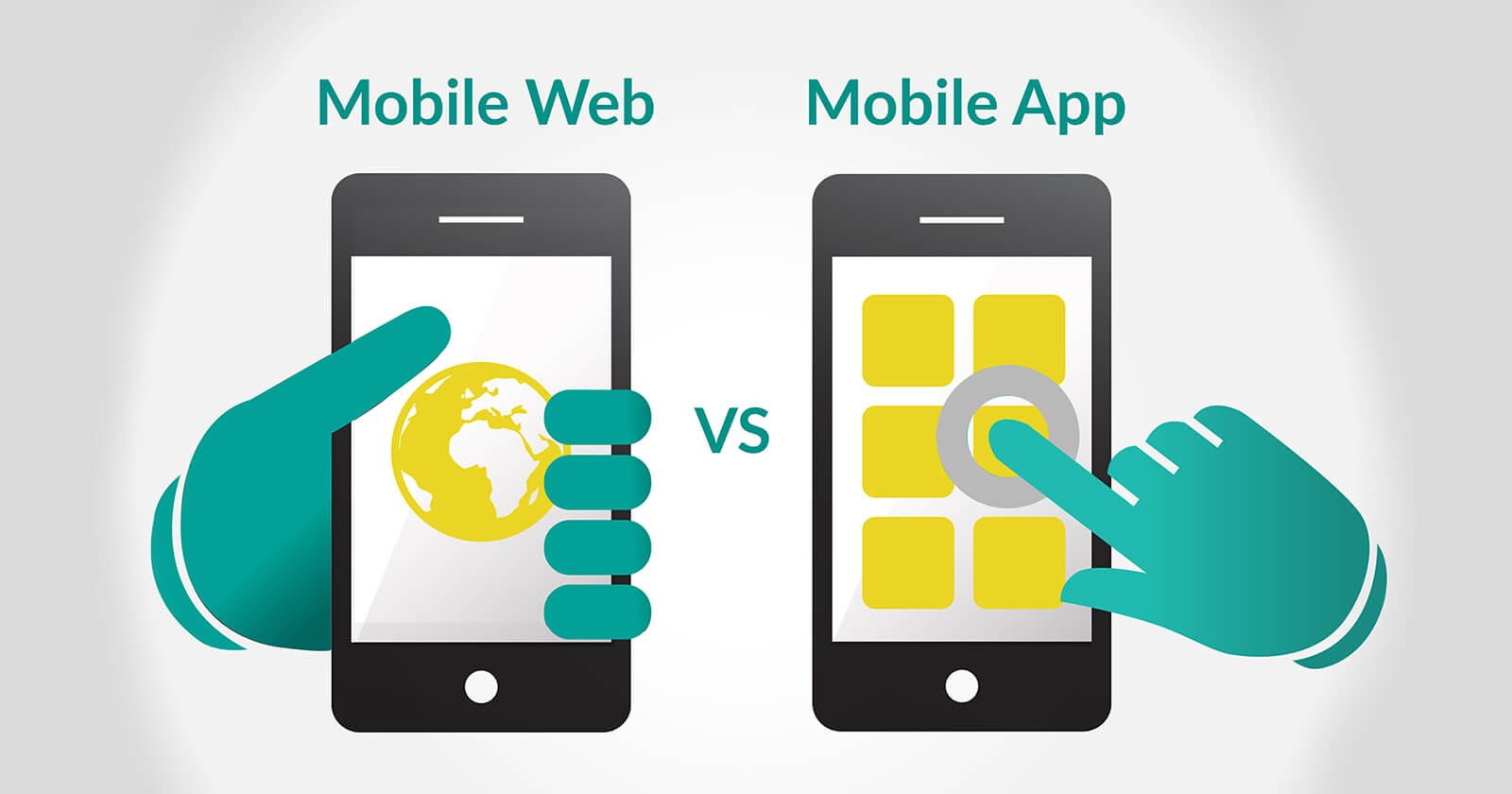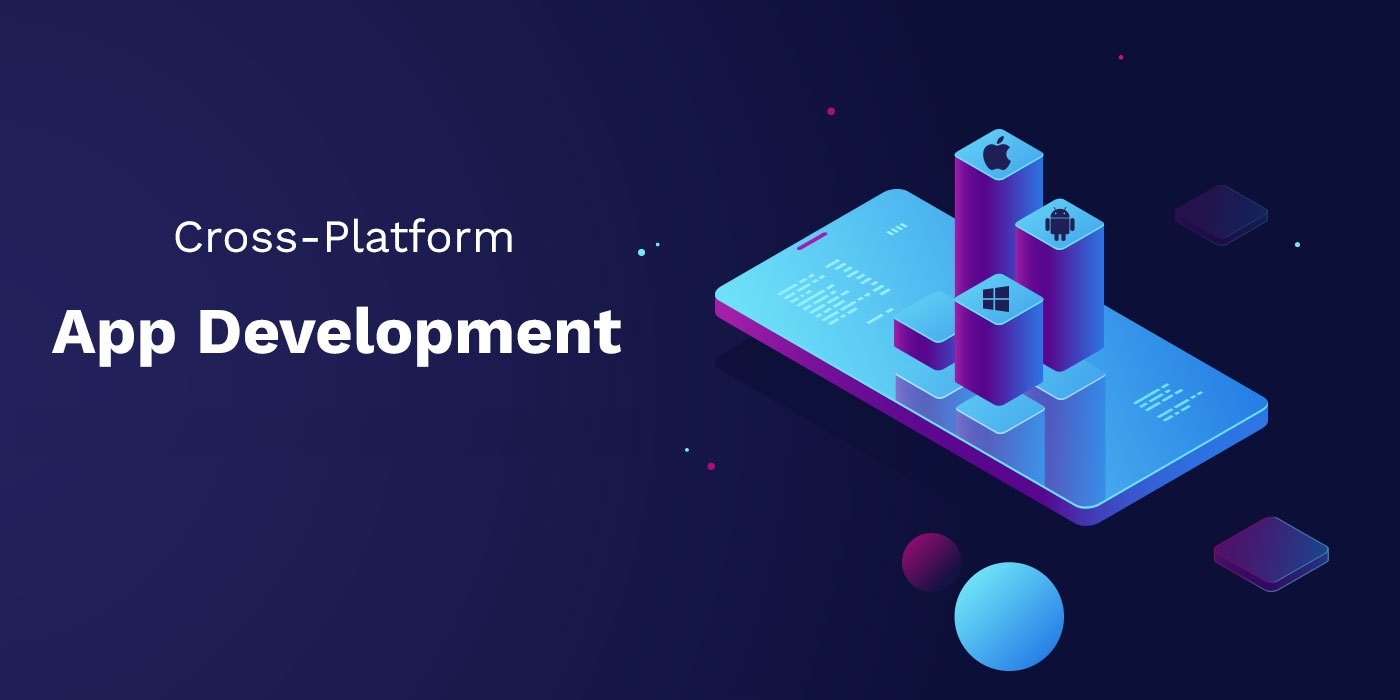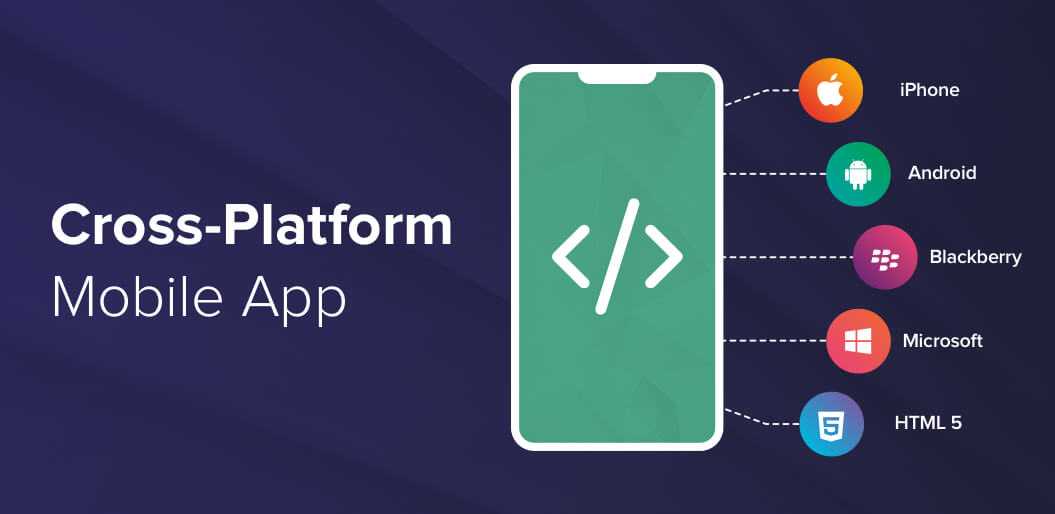

Looking to develop an application that can target both Android and iOS users?
Developing a mobile application for multiple platforms separately can be both time and money-consuming. This is where cross-platform development comes into play.
Cross-platform app development offers mobile applications that can be deployed and operated on multiple operating systems. Moreover, application development is also done in a single universal language that can be easily exported to any platform, making the app development process faster.
This blog will walk you through everything you need to know about cross-platform mobile app development in 2021. So, keep reading.
What is cross-platform mobile app development?
Cross-platform app development allows developers to develop such mobile applications that are seamlessly compatible with more than one operating system. It is about developing a single app that can run smoothly on multiple OS (mainly Android and iOS).

It follows the “write once run anywhere” (WORE) ideology to develop mobile apps and discard the development of app versions for different platforms, individually.
The underline of such applications is that they are cost and time-efficient and can reach a mass with uniform UI and functionalities near to native experience. Thus, making it ideal for startups, and mid-level companies as they are developed rapidly, cost-effective, and take comparatively less time to market.
Challenges faced in cross-platform app development
Years back, there were few restrictions in the cross-platform app development to make simple mobile games and applications. But with time, cross-platform development becomes more robust, adaptable, and flexible with the help of emerging technologies and advancements.
However, here are a few existing challenges that hinder the cross-platform app development process.
At times, due to the inconsistent communication between the gadgets of native and non-native components, the performance of the application drops down.
The availability of tools and technologies is limited for such applications.
Cross-platform app development is less recommended for managing corporate and user data on a regular basis.
However, the advantages outrank the disadvantages of the Cross-platform applications.
Benefits of Cross-platform application development

Reach to a wider audience
As cross-platform applications can be deployed on multiple platforms (Android, iOS), it practically doubles your targeted audience. This saves your time and money in targeting more audiences with lesser effort.
Reduced expenses
As deployed on multiple platforms, cross-platform apps reduce the company’s expenses to get a separate app developed for each platform and pay for various tools and technologies. Also, the fact that codes can be reused and adopting agile methodologies can reduce the expenses even more.
Uniformity across platforms
The UI/UX plays a crucial role in customer retention and engagement. As the cross-platform application is developed common for all the platforms, it becomes easier for users to find identical UI and UI elements for different platforms. This consistency helps in retaining customers even if they change devices or platforms.
Faster development process
Cross-platform application development is faster when compared to the other app development processes. It can save developers’ time and efforts by 50% as the code is written once only. A feature-rich application can be developed for multiple platforms with less effort and in comparatively less time.
Quick prototyping
As the development process becomes swift for cross-platform app development, prototyping becomes simple, faster, and effective. Quick prototyping ensures that the development process is going faster, and as per the pre-decided flow. This leads to the expected development of the idea into an application.
Code reusability
This is the best advantage of cross-platform application development. Once a code is written, it can be used repeatedly on different platforms to save time, effort, and money.
Simple cloud integration
A sparkling advantage of cross-platform apps is their compatibility with multiple plugins integration. Cloud integration is highly compatible with cross-platform applications, which also increases the scalability and functionality of the application as a single source code is used for integrating various plugins and cloud functionalities.
Easy product maintenance & deployment
As there is only one code, any update or change in the functionality of the application can be easily deployed across all platforms. The same thing goes if there is any bug or error then a common code makes it simpler to rectify it.
Reduced time-to-market
As the development process is faster for the cross- platforms app development, the deployment and maintenance are faster, thus giving enough time for the app to market. The application can reach the audience faster, and thus it can be beneficial for your business to make your services available faster.
Difference Between Native and Cross-Platform App Development

Choosing between native and cross-platform mobile app development has always been a debate for developers. Both the frameworks have their pros and cons. However, they are unique in their own ways. when compared with cross-platform apps, native apps are different.
| Native App Development | Cross-platform App Development |
|---|---|
| Works only for a single operating system. | Works for multiple operating systems. |
| Native apps perform faster and offer a higher degree of reliability. | Cross-platforms apps are comparatively less reliable and slower as compared to Native apps. |
| For startups, native applications can prove costly. | Cross-platform apps are cheaper and are more beneficial than native apps. |
| For native apps, the platform SDK enables access to the device’s API without any problems or hindrance. | In cross-platform apps, there is no assured access to all device APIs. |
| Native apps are more consistent with the UI components. | Whereas, cross-platform apps have limited consistency with the devices’ UI components. |
So, when choosing between native apps and cross-platform apps, startups prefer cross-platform apps only. Cross-platform apps are flourishing to enhance their overall performance by making better apps continuously.
With the advancement in tools and technologies, cross-platform applications look much similar to native applications. By analyzing your business’s current sound position, you can choose what to use – native apps or cross-platform apps.
Conclusion
Cross-platform app development has rising popularity and is the smartest choice for businesses that require wide coverage. Moreover, they are cost-effective and have a quick turnaround time.
Hauper Technologies, a cross-platform mobile app development company, can guide you better and give the best decision as to which framework will suit your company in the best way. Share your details now to get that perfect app for your business.







